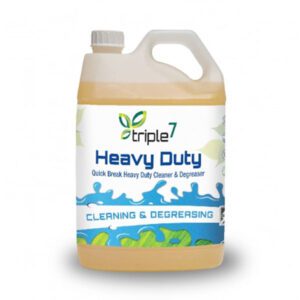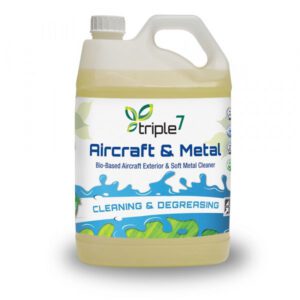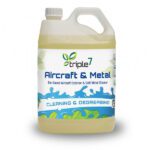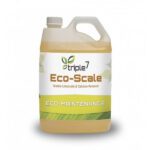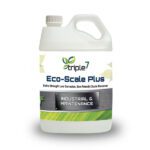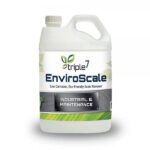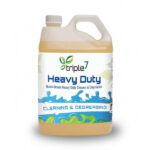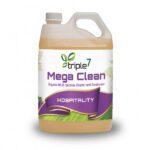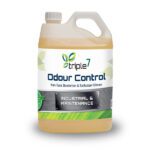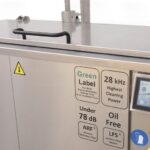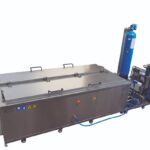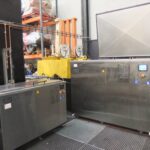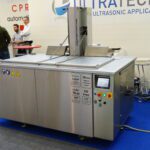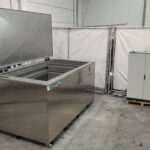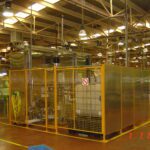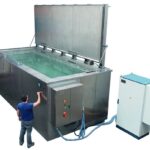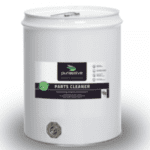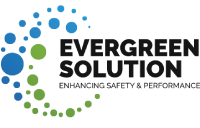Enhancing Cleaning Efficiency in an Auto Component Manufacturing Industry
Case Study-4
- Home
- Case Studies
- Enhancing Cleaning Efficiency in an Auto Component Manufacturing Industry
Enhancing Cleaning Efficiency in an Auto Component Manufacturing Industry
Introduction:
This case study focuses on a leading auto component manufacturer, which is fully owned by a French multinational corporation. With a dominant market share of around 70% in the engine parts industry, this company is renowned for supplying engine parts to major automotive players such as Ashok Leyland, Maruti, and Hyundai. However, the company faced a challenge when it experienced a reduction in cleaning efficiency due to a significant increase in cleaning loads over the past four years. This case study explores the solution implemented to address this issue and improve the overall cleaning process.
The Situation:
The auto component manufacturer had been utilizing a four-stage cleaning procedure employing Rooptelsonic Ultrasonic Equipment for the past four years. The equipment was responsible for cleaning approximately 300,000 pieces per month. The cleaning solution was supplied to the washing chamber through three tanks, each equipped with an oil skimmer and heating arrangement. The first two tanks contained a degreaser, while the final tank held a corrosion inhibitor. After the degreasing procedures, a rinse with a rust inhibitor was conducted, followed by hot air drying.
The Challenge:
To address the reduced cleaning efficiency, a solution utilizing Triple 7 Heavy Duty degreaser and Triple 7 Aircraft and Metal Cleaner as a rust inhibitor in the final rinse stage was proposed. The Triple 7 products offered numerous benefits, such as being made from renewable resources, readily biodegradable, and not requiring any treatment after use. Additionally, the Triple 7 degreasers were not only powerful but also safe to flush down drains, ensuring compliance with environmental regulations.
Implementation and Results:
Following the implementation of the Triple 7 solution, the auto component manufacturer experienced a remarkable improvement in cleaning efficiency. The enhanced cleaning results were evident, prompting the client to adopt Triple 7 Degreasers in the Ultrasonic Cleaning Machine permanently. The utilization of Triple 7 products allowed for efficient degreasing of the components and ensured effective protection against corrosion during the final rinse stage.
The key advantages observed after implementing the Triple 7 solution were as follows:
Increased Cleaning Efficiency: The Triple 7 Heavy Duty degreaser effectively removed grease and contaminants from the components, resulting in improved cleaning performance. This eliminated the concerns related to the reduced cleaning efficiency experienced previously.
- Environmental Friendliness: Triple 7 products, being derived from renewable resources and readily biodegradable, aligned with the auto component manufacturer’s commitment to sustainability. The use of these eco-friendly products not only improved operational efficiency but also reduced the environmental impact associated with the cleaning process.
- Regulatory Compliance: The Triple 7 degreasers’ ability to be safely flushed down drains ensured compliance with environmental regulations. This significantly reduced the complexity and costs associated with waste management and disposal, providing an added advantage to the company.
Conclusion:
Through the implementation of Triple 7 Heavy Duty degreaser and Triple 7 Aircraft and Metal Cleaner, the auto component manufacturer successfully addressed the challenge of reduced cleaning efficiency caused by the significant increase in cleaning loads. The adoption of these environmentally friendly and highly effective cleaning solutions resulted in improved cleaning performance, regulatory compliance, and reduced environmental impact. This case study highlights the importance of regularly evaluating and updating cleaning processes to ensure optimal efficiency and sustainability in the manufacturing industry.

